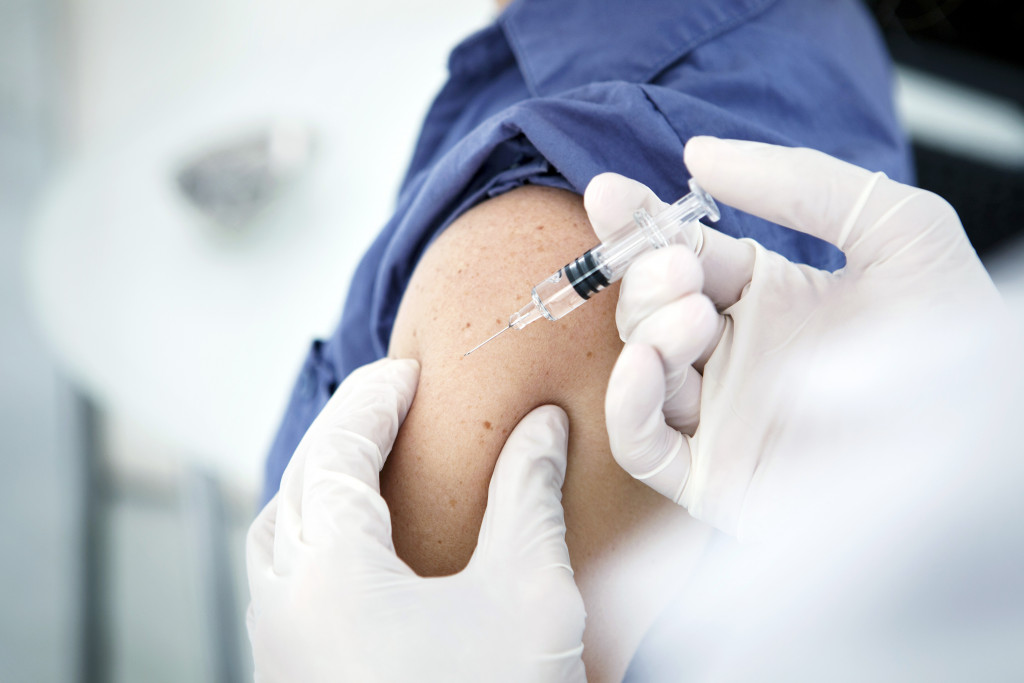Every person of any age is at risk of COVID-19, but the senior population definitely tops the list if we talk about high-risk individuals. Adults age 65 and up are at greater risk of getting infected by COVID-19. Most of them have preexisting health conditions, such as arthritis, diabetes, cancer, heart disease, respiratory issues, and other chronic diseases. Having these conditions makes them even more vulnerable once they encounter an infected individual.
When the COVID-19 outbreak began, hospice care and home health agencies established safety protocols to prevent COVID-19 transmission. Meanwhile, nursing homes have set limitations on family visits to keep their senior residents protected from the possible threats of COVID-19.
Now that vaccines are available, health organizations encourage people, especially older adults, to get their vaccines. In fact, many countries are prioritizing seniors to receive the vaccine. While many of them are eager to set their vaccine appointments, some are expressing their dissent against the vaccine because of fear, confusion, lack of knowledge, or certain concerns.
There are plenty of reasons and factors why some seniors are having doubts about the COVID-19 vaccine. That’s why it’s essential to address these concerns to encourage them to get vaccinated and stay protected from COVID-19. In this article, we’ll talk about ways to talk to your senior loved one about the COVID-19 vaccine.
Encourage open conversation
If your senior loved ones have different feelings and perspectives about the COVID-19 vaccine, invite them for an open discussion to address concerns and communication gaps. This approach will require you to have an active listening trait to improve your conversation with family members.
Instead of expressing your disagreement with their opinions, allow them to share their perspective about the vaccine. While they’re speaking, make them feel you’re actively listening to what they say. You can also use reassuring statements that show your understanding of their concern and uncertainties. Whatever technique you choose, make sure to let them know you understand their feelings.
After they’re done, use the opportunity to explain and address misunderstandings. You can also ask questions to help you understand their concerns and point of view. Asking questions helps in providing assurance and deepening the discussion.
Explain the efficacy of the vaccine

As mentioned earlier, it’s widely known that seniors are at higher risk for severe illness and mortality from COVID-19. Vaccines against COVID-19 have high efficacy rates, which reduces a person’s chances of getting infected.
Although getting vaccinated is a personal decision, everyone should understand the beneficial impact vaccines provide in preventing COVID-19.
Address risk and safety concerns
A study revealed that vaccines have mild to moderate effects, such as pain or numbness at the injection site, muscle pain, or low-grade fever. But the intensity and the number of side effects may still depend on the type of vaccine received and the body’s physical response.
It’s worth noting that many seniors reported little to no adverse effects even after getting vaccinated. Early studies also show that seniors have lower risks of side effects than the younger population.
Read expert sources
Social media is full of trolls who share misinformation about COVID-19 and vaccines. So, if your senior loved one has a social media account, remind them to rely only on trusted sources when finding information about the COVID-19 vaccine. Tell them not to be overwhelmed when searching for credible and unbiased sources.
Seniors should seek scholarly sources from reputable health organizations, such as the Centers for Disease Control and Prevention (CDC) and World Health Organization (WHO). You can also visit nearby health institutions in your area.
Consult a doctor
If you’re having a hard time encouraging your senior relative to get the vaccine, accompany them on their next appointment with their medical provider. Tell the doctor about your concern to help you discuss the matter. An outside perspective can offer counsel and expert opinion.
Doctors have the medical expertise to effectively explain the benefits of the COVID-19 and address all concerns. At the same time, you can also ask the help of the physician to know if your senior relative has an allergy to COVID-19 vaccines. Vaccines may have certain ingredients that may worsen health conditions or aggravate the side effects.
Although things are somehow getting back to normal, it’s still important to stay vigilant about the threats of COVID-19. Although your senior loved one may not be ready to receive the vaccine, it’s essential not to give up. It takes a lot of patience and a few conversations to encourage them to get vaccinated.

